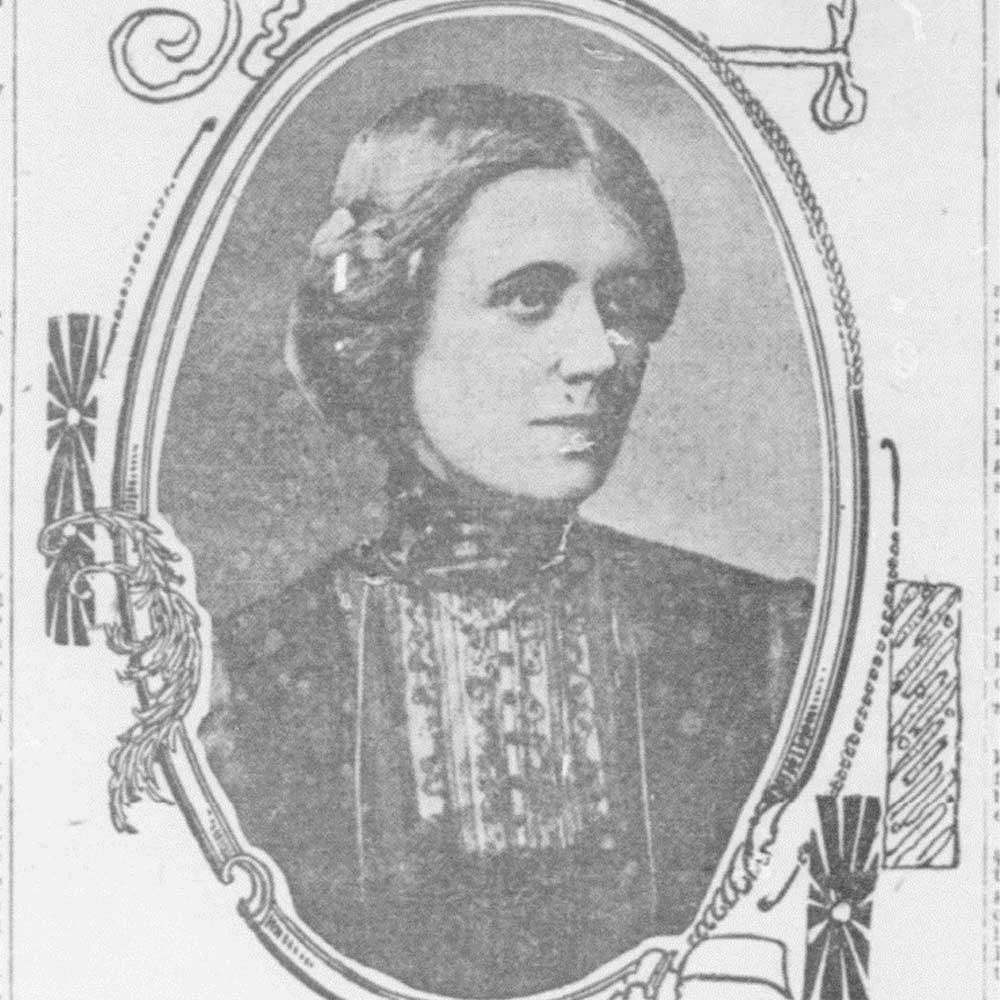
Ethel Annakin/Snowden (1881-1951) was a campaigner for women’s suffrage, for temperance, a socialist and a lifelong believer in pacifism. As a member of the Fabian Society, the Independent Labour Party, and The Women’s Peace Crusade we glimpse a little of Ethel’s determination to promote humanitarian causes and to remove inequality and disadvantage in society wherever she perceived it. Her strong will was also apparent when we hear that “She had insisted on leaving home to become a teacher” (Cross 1966, p. 60).
At the age of 19 she left her home in Harrogate and began her teacher training at Edge Hill College, Liverpool, the importance of the non-denominational nature of Edge Hill would have been a significant factor in Ethel’s choice to study here. We are currently still exploring the Edge Hill archives for insights into Ethel’s teacher training years (1900-2), however we do know that during her time at Edge Hill she attended Pembroke Chapel, to listen to the rousing sermons of the Rev Charles Aked. It was here that Ethel first took the opportunity to speak out publicly against the inhumane conditions for Boer women and children during the Boer war (1899–1902). Indeed, during this time, Ethel realised that she had a gift for public speaking, and that she could convince an audience through her spirited rhetoric (Smith 2019).
In 1902 Ethel left Edge Hill College and took up her first teaching post at Hunslet Girls School, in Leeds. In 1903 she joined the Leeds Women’s Suffrage Society and at the beginning of 1904 Ethel took a post at Walverden School, Nelson, and, as was expected in those times, she resigned her position on her marriage to Philip Snowden in March 1905.
In 1907, whilst Philip took his seat as an MP for Blackburn, Ethel embarked on a lecture tour of the US, which proved to be a huge success. Ethel usually spoke impromptu, with little or no notes, her main subjects at that time being suffrage and temperance. However, not everyone in America would be in favour of hearing Ethel speak. President Taylor of Vassar College, New York, thought that Lady Snowden was “Too Dangerous to Address Girls” (Washington Times, Sept 1908). Ethel was a member of the suffragists (National Union of Women’s Suffrage Societies; NUWSS), led by Milicent Fawcett, who believed in securing the vote for women by peaceful and lawful means. Whereas the suffragettes, (Social and Political Union; WSPU) led by Emeline Pankhurst believed in direct action and civil disobedience. Perhaps President Taylor conflated the suffragists with the suffragettes, which could explain his refusal to allow Ethel’s lecture to go ahead.
Even so, Ethel’s 1907 lecture tour of America was so successful that she was invited back nine times over the next twenty years. A woman of beauty and grace as well a strong opinion, Ethel Snowden’s lectures could arouse feelings of admiration, and empower audiences through her conviction. It is estimated that in 1917, when Ethel became the principal speaker of The Women’s Peace Crusade, she spoke every weekend at meetings across the UK. In this year alone she had addressed audiences totalling half a million people.
Ethel Snowden gained a reputation for being a powerful and passionate speaker, her “inspirational style” was referred to as “sparkling with epigram, bright with humour and satire, and sympathetic with pathos and feeling” (Cross 1966, p.68). We relish the opportunity to explore more of her history and how it connects with every woman today.
Dr Christine Lewis, Faculty of Education.
References
- Cross, C., 1966. Philip Snowden. London: Barrie & Rockliff.
- Smith, K., E., (2019) ‘A Fighting Parson doe Social Reform, Baptist Quarterly, 50:1, 3-18, DOI: 10.1080/0005576X.2017.1343894
- Washington Times 8th September 1908 https://chroniclingamerica.loc.gov/lccn/sn84026749/1908-09-08/ed-1/seq-7/
